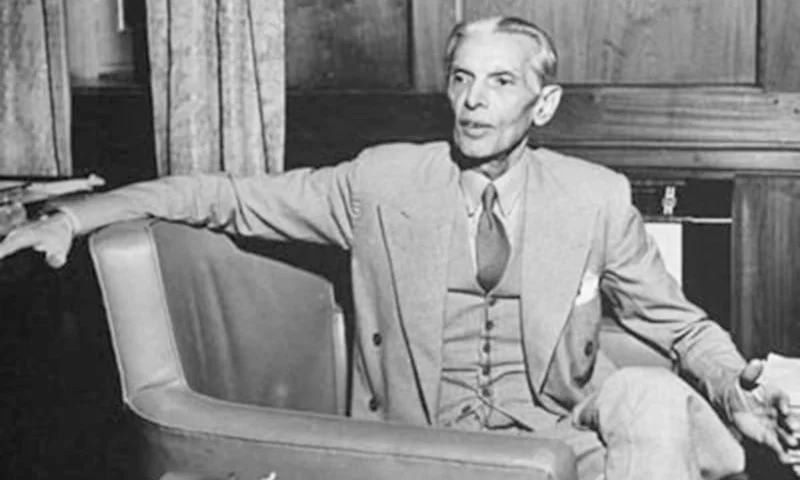Mohammad Ali Jinnah, revered as Quaid-e-Azam (“Great Leader”) in Pakistan, was a pivotal figure in the 20th century. More than just a politician, he was a strategist, negotiator, and a leader who united a nation through unwavering resolve and a clear vision. His leadership qualities, 05 Leadership Qualities of Jinnah, offer valuable lessons for anyone seeking to navigate complex challenges and inspire others.
1. The Power of Conviction: From Unity to Independence
Jinnah’s early political career was marked by a belief in Hindu-Muslim unity. He advocated for self-governance within a united India. However, as religious tensions rose and Muslim rights seemed increasingly marginalized, Jinnah’s vision evolved. He championed the creation of a separate Muslim homeland, Pakistan.
Story: The Lahore Resolution In 1940, the All-India Muslim League, led by Jinnah, passed the Lahore Resolution. This historic document demanded a separate Muslim state, marking a turning point in the Indian independence movement.
What is the Socratic Method and its 07 Significant Pillar? Learn them to Master the Art of Debating
Saying: “Unity is strength, but diversity is the condition for that strength.” (Though not explicitly referencing Hindu-Muslim unity, this quote reflects Jinnah’s evolving perspective on the importance of recognizing distinct identities for a strong nation.)
2. Iron Will and Negotiation: The Fight for Pakistan
Jinnah’s leadership was characterized by an unwavering determination. He skillfully negotiated with the British Raj and the Indian National Congress, securing Pakistan’s independence despite immense pressure and seemingly insurmountable odds.
Story: The Partition Negotiations The negotiations leading to the partition of India were a brutal affair. Jinnah, however, remained steadfast in his pursuit of a separate Muslim homeland, ensuring the creation of Pakistan.
05 Great Leadership Qualities of Nelson Mandela – A Visionary Leader Who Spent 27 Years in Jail
*Saying: “No nation can ever be built unless it is founded on the solid foundation of complete nationalism.” *
3. Constitutionalism and Unity in Diversity
Jinnah envisioned Pakistan as a democratic, Islamic republic. He emphasized the importance of constitutional rule, religious tolerance, and equal rights for all citizens, regardless of religion, among 05 Leadership Qualities of Jinnah.
Story: First Address to the Constituent Assembly In his first address to the Constituent Assembly of Pakistan, Jinnah outlined his vision for a nation that would “safeguard the interests of religious minorities” and ensure “freedom of conscience.”
*Saying: “You may belong to any religion or caste or creed – that has nothing to do with the business of the State.” *
4. Leading by Example: Building a New Nation
Jinnah’s leadership extended beyond political maneuvering. He led by example, living a modest life and dedicating himself entirely to the, 05 Leadership Qualities of Jinnah, cause of Pakistan. His work ethic and integrity inspired his followers and instilled a sense of national pride.
Story: Refusal of Knighthood Jinnah, unlike many of his contemporaries, refused a knighthood from the British Raj. This act of defiance demonstrated his commitment to self-determination and his prioritization of the national cause over personal gain.
Peace vs. Power: 05 Leadership Qualities of Gandhi and His Daring Experiment
*Saying: “The betterment of the people of Pakistan is our main objective.” *
5. A Legacy of Resilience: The Foundations of Pakistan
Though Jinnah’s life was tragically cut short, his leadership laid, 05 leadership qualities of jinnah.\, the groundwork for a new nation. His vision of a democratic, Islamic republic continues to shape Pakistan’s identity.
Story: Jinnah’s Final Speech In his last address to the nation, Jinnah emphasized unity, tolerance, and perseverance. These values remain cornerstones, 05 leadership qualities of jinnah, of Pakistani society.
*Saying: “Pakistan is not a theocracy; it is a state for all its citizens.” *
The Enduring Legacy of Quaid-e-Azam
Quaid-e-Azam Mohammad Ali Jinnah’s leadership qualities offer valuable lessons in perseverance, 05 Leadership Qualities of Jinnah, strategic thinking, and unwavering commitment to one’s convictions. He remains a towering figure in Pakistani history, a symbol of national pride and a leader who, 05 Leadership Qualities of Jinnah dared to dream of a new nation.
